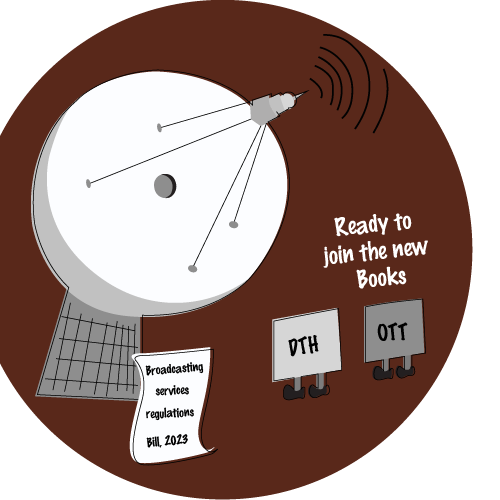Broadcasting Services Regulations Bill 2023

Broadcasting means the electronic dissemination of content for informational, educational and entertainment purposes. Historically, radio and television (including cable television network) were considered the major medium of information broadcasting. With the advent of internet and computers, direct to home (DTH) and over the television (OTT) they have become part of mainstream broadcasting as well.
Historically, the Cable Television Network Regulations Act, 1995 was the only legislation governing various aspects of media broadcasting.
Nearly 3 decades later, in November 2023, the Ministry of Information and Broadcasting introduced the draft of the Broadcasting Services Regulations Bill with the objective of entirely replacing the Cable Television Network Act.
Constant changing technologies bring with it challenges of accountability and compliance. The proposed Broadcasting services Bill seeks to provide a unified code of regulation and compliance for all forms of media broadcasting including digital news.
A look at the highlights of the proposed Draft Bill:
- One consolidated / unified legislation to address all issues relating to broadcasting.
- To include DTH, OTT and Digital news under the purview of the Bill in keeping up with advancement of technologies. They are currently being regulated under the IT Act 2000.
- The Bill contains definitions of contemporary technologies and broadcasting terms including but not limited to “internet protocol television” (IPTV), “Direct to home” (DTH), “Over the top” (OTP)
- Put in place structured code to govern programmes and advertisements. This would involve classification of broadcasters to decide on access and control of information disseminated.
- Penalties / fines shall not be monetary. Advisory, warning, censure will be issued thereafter penalties / fines will be levied. They will be based on the quantum of investment made; turnover earned by the broadcasting entity. This is to ensure that smaller players are not burdened with heavy penalties.
- The Bill contains provisions for regulating and governing sharing of infrastructure by various broadcasters / broadcasting networks.
- The most important provision is the introduction of provision making broadcasting content accessible and available to persons with disabilities. This includes setting aside a percentage of their programming content to persons with various disabilities by customizing content based on the specific disability. The Bill also proposes to put in place a grievance redressal mechanism for persons with disabilities relating to content.
- To make the Regulatory process efficient by putting in place ‘Content Evaluation Committee’ and ‘Broadcast Advisory Council’ for each broadcasting entity to enable effective self-regulation.
The objective of proposing a unified broadcasting legislation is to ensure ease of doing business by repealing older, outdated laws and brining a unified law that keeps pace with changing times and technologies. Further is it to ensure a transparent law with emphasis on self -regulation by broadcasting entities.
The Draft of the Bill is open to stake holders, interested parties and public for recommendations and suggestions to the Ministry of Information and Broadcasting on or before 9th December 2023.

